Since the leaking of the NSA’s PRISM program last month, even more information has come out in understanding just how far-reaching the surveillance was.
Now, more than ever, people are looking for secure methods of social networking (or perhaps they are growing tired of Facebook’s ever-changing layout). Either way, check out these alternatives for some of the major social networks.
1. Ansa
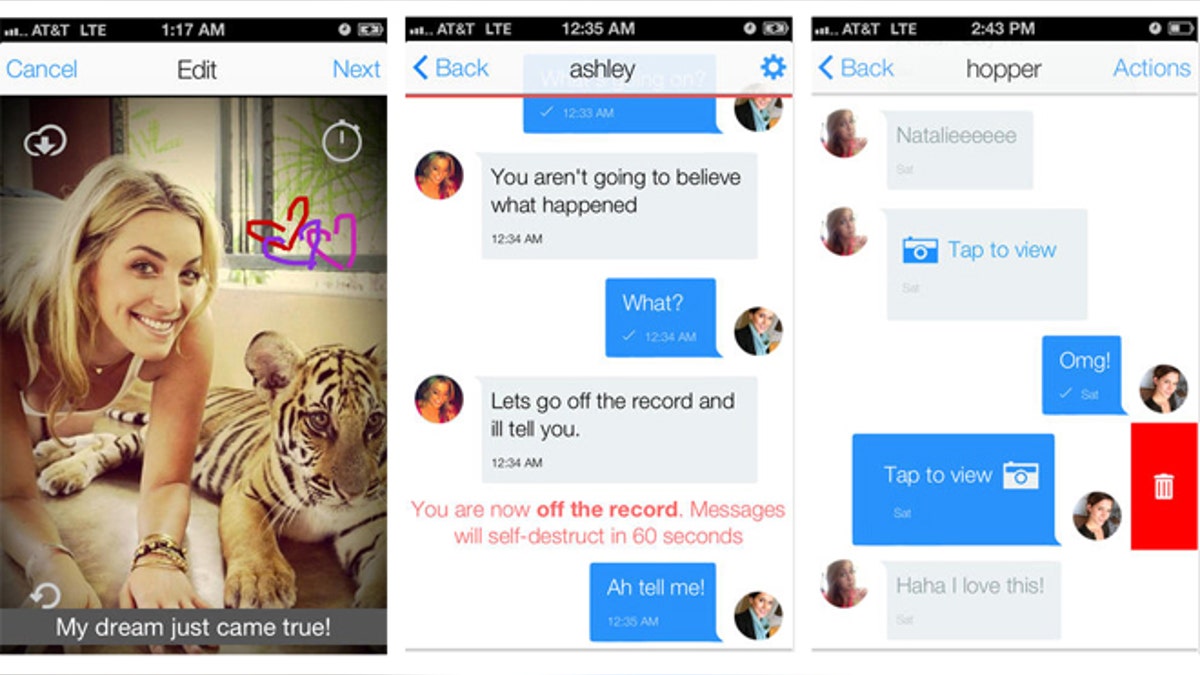
(Ansa)
Concerned about your privacy? Try the new messaging app Ansa.
The recently launched app allows users to chat "off the record," deleting sent texts 60 seconds after they have been read.
"The difference with other texting apps is that everything you say is permanent," Natalie Bryla, Ansa founder and CEO told TechCrunch.
The app also allows users to delete messages hours, days and even months after being sent with the "sync deletion" option. The message is deleted from the sender and recipient's phones as well as permanently removed from Ansa's servers.
Being private does not mean you can't have fun; the app also comes with filters and the ability to draw on photos before sending them.
2. Viewfinder
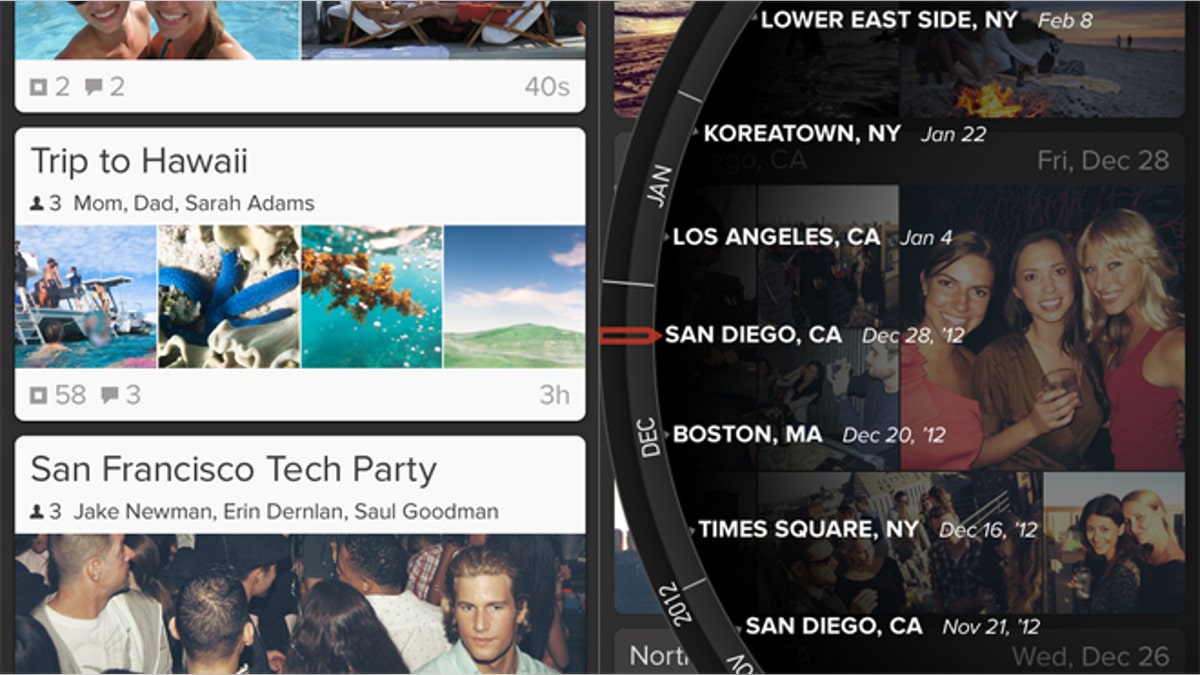
(Viewfinder)
Currently an iPhone-only app, Viewfinder is an Instagram alternative. Touted as an easier way to organize and view photographs, Viewfinder allows users to share photos or collections of photos with specific people, while creating conversations centered on them, according to the website.
It also allows users to share photos with non-users, by allowing them to view photos in a private library and join in via email conversations. There are three options for users: Free, which allows users to use the app; Viewfinder Plus, which offers 5 GB of backup storage for $1.99 a month; and Viewfinder Pro, which offers 50 GB for $9.99 a month, according to GigaOM.
3. Path
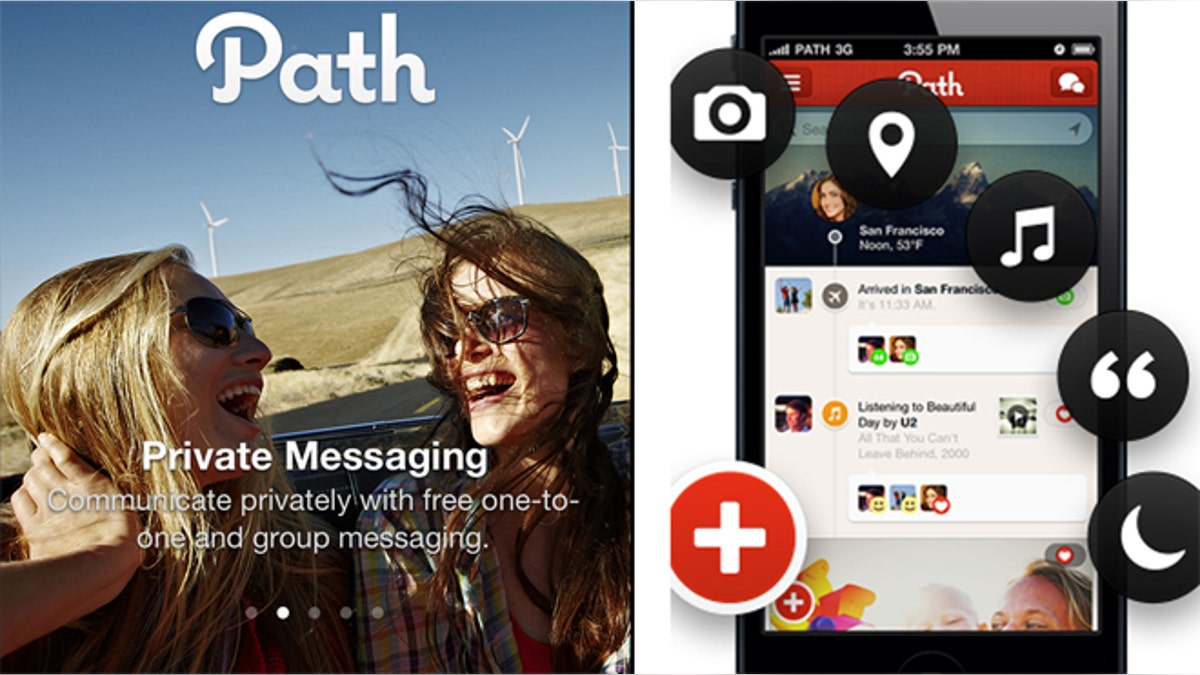
(Path)
Path is a way to privately message and share updates with your closest friends and family. According to its website, Path was inspired by Professor Robin Dunbar of Oxford University, whose research shows that people tend to have 5 best friends, 15 good friends, 50 close friends and family, and 150 total friends. As a result, users are only allowed to share updates – including photos, messages, locations, videos and more – with only 150 people.
Unlike Facebook, Path is private by default. The company assures users that people are always in control of their moments and who can see them.
The Path app is available to download from the App Store, Google Play and Kindle Fire.
4. Diaspora
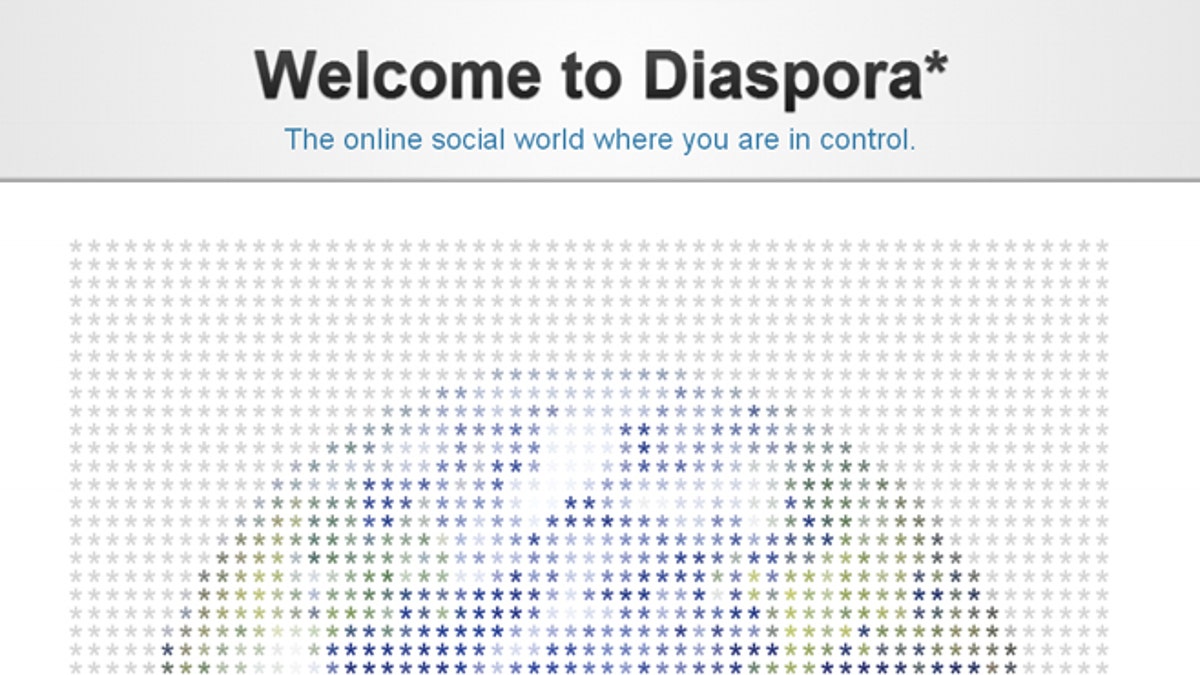
(Diaspora)
Described as an anti-Facebook, Diaspora* was created by students at NYU’s Courant Institute in 2010. Proposing to build an open-source, distributed social network as an alternative to Facebook, they raised $10,000 on Kickstarter. Two years later, the anti-social network was handed over to the online community, where it has grown to have members worldwide.
Meant for more tech-literate users, Diaspora* is based on three key philosophies of decentralization, freedom and privacy. This is meant to allow users to have full-control over all their information. Users join by selecting a server (or “pod”) of their choice, signing up and join the conversation. Features include: Aspects (similar to Google+ “Circles”) and functions similar to Twitter, such as hashtags, @-mentions, and resharing.
5. Couple
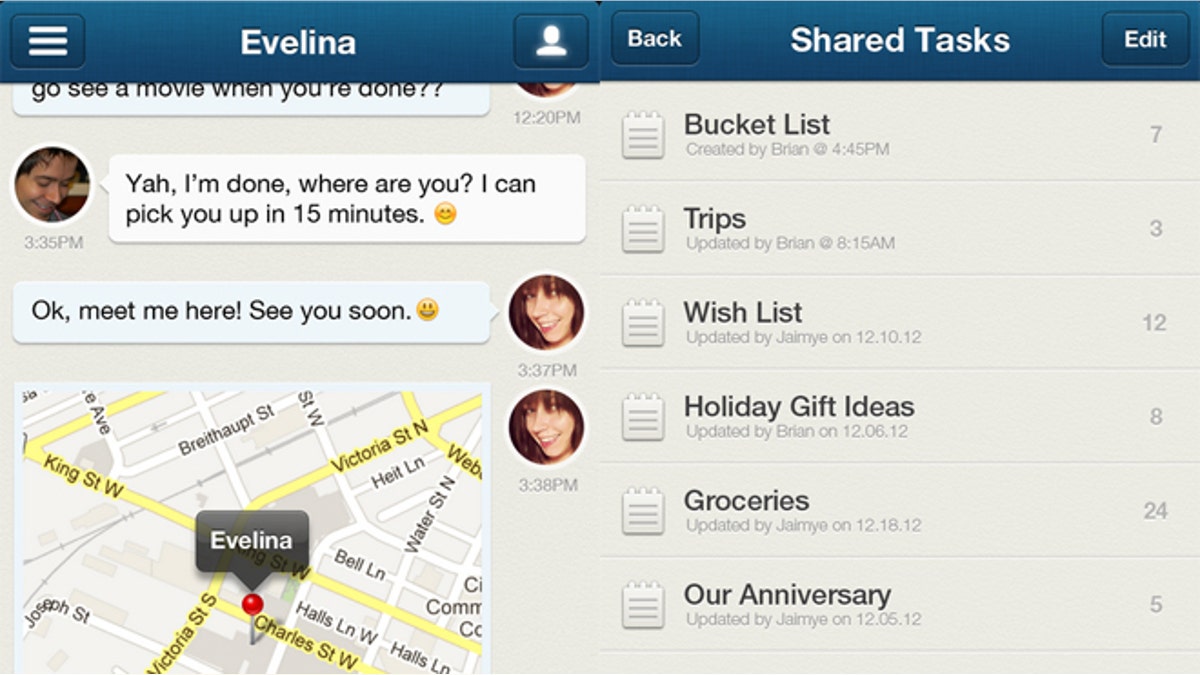
(Couple)
Meant for people in relationships, Couple (formerly called Pair) is an app made for two. With features such as snapping and saving pictures between lovebirds (or “Moments,” as they are known); scheduling dates; sharing lists, drawings, and “thumbkisses,” it has all the things you need to be – and stay – in love. Couple is available for Android and iPhone.
6. Circle
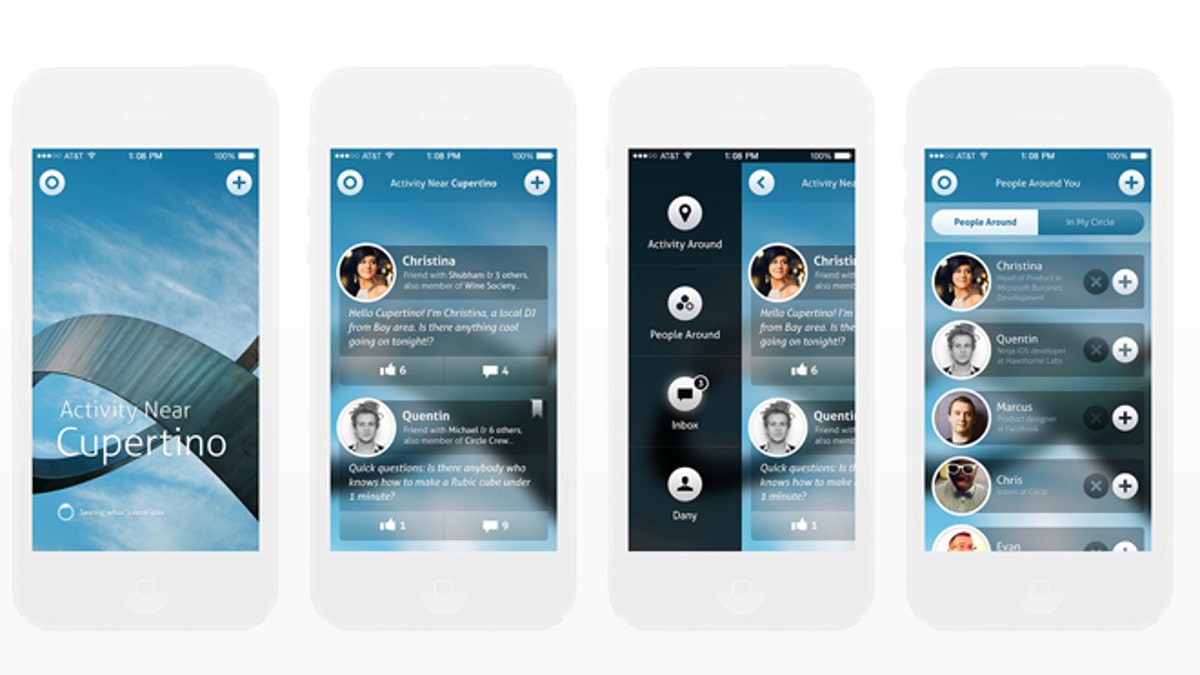
(Circle)
Like FourSquare and Google Latitude, Circle is a GPS-based social media network. Alerting users when their friends or people from their networks – whether it be home, college or work – are near them, it can bring people face-to-face.
If alerted, users will be able to message their nearby friends if they want to meet. Unlike other GPS social networks, people can’t pinpoint your location and privacy is always in your hands, according to the app description. Added bonus: It won’t drain your battery on your Android or iOS device.
7. Backdoor
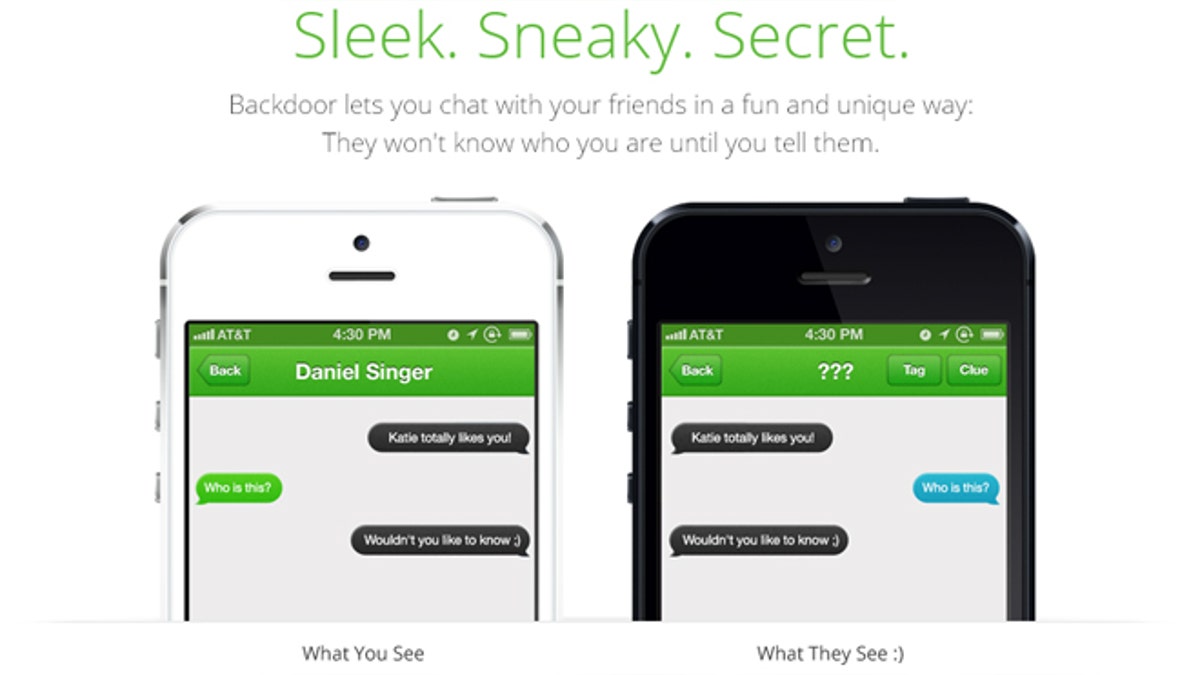
(Backdoorapp.com/FoxNews.com)
Invented by the 13-year-old whizkid who created YouTell – the site that allows people to comment on their friends’ questions anonymously – BackDoor was created along the same venue. With this iPhone-only app, users can send messages anonymously. Yet, it is not as one-sided as some might think, as the recipients can redeem clues to try to figure out their identity.
The privacy policy states that users have the right to delete any personal information and their account anytime, adding that once you share information with another user, they will not have a chance to recover such information. So as it always is with Internet etiquette, be mindful of what you share.
FoxNews.com's Michael Roppolo contributed to this report.




















